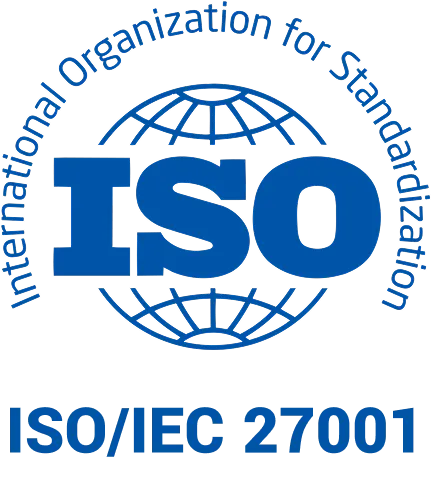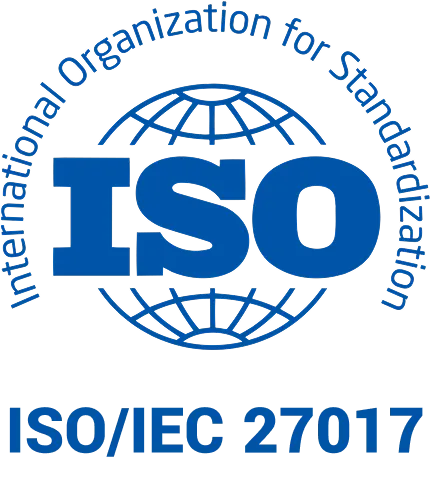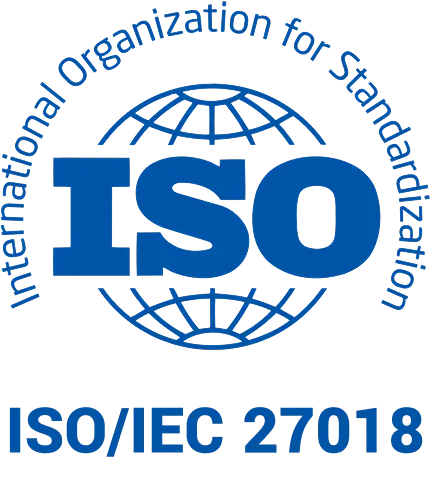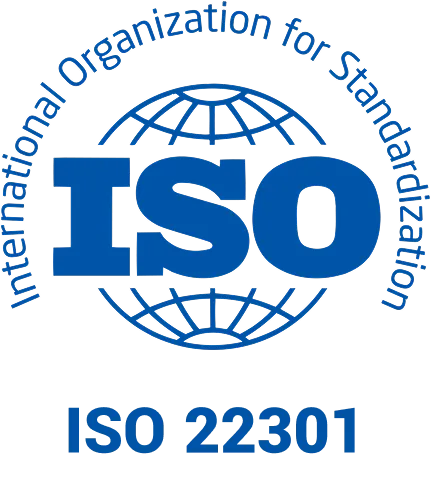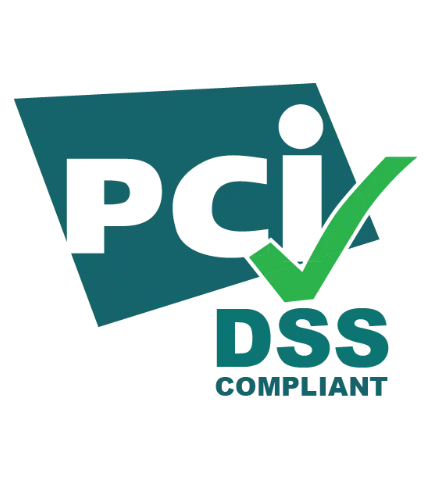
Employee Healthcare: A Guide to Scope, Options, and Company Implementation
Employee healthcare is one of the most important non-wage benefits, gaining significant traction in Polish companies. At a time when access to public healthcare is limited by long queues, employers are increasingly investing in private medical packages as part of a strategy to build a strong organization. Health benefits not only improve the team's quality of life but also translate into tangible business advantages—from reducing sick leave to strengthening the employer brand. In this article, we provide a comprehensive guide to employee healthcare, discussing the scope of available services, package options, and the practical aspects of implementing this benefit in your company.
What is employee healthcare?
Employee healthcare is an organized system of health services fully or partially funded by the employer. It is a form of voluntary health insurance that provides employees with access to medical services in private facilities, avoiding the long waiting times characteristic of the public healthcare system.
The role of non-wage benefits in your strategy
In the structure of employee benefits, medical care holds a strategic position. Labor market research indicates that private healthcare is among the most desired non-wage benefits, often surpassing sports cards or meal subsidies. For 73% of employees, access to private healthcare is a crucial factor when choosing an employer.
Benefits for the employer and the employee
Benefits for the employer:
- Reduced absenteeism thanks to faster access to specialists
- An enhanced image as a responsible employer
- Increased team loyalty and engagement
- Easier recruitment in a competitive job market
- Improved productivity by promoting employee health
Benefits for the employee:
- Immediate access to medical specialists without long queues
- Comprehensive diagnostics and treatment in one place
- Savings on time and money spent on private medical services
- Peace of mind associated with having reliable healthcare access
- The option to extend coverage to family members
Medical packages as a form of healthcare
Traditional medical packages are based on a subscription model, where the employer purchases access to a network of medical facilities for employees for a specified period, typically 12 months. The employee receives a card that entitles them to use services within the purchased package.
Modern solutions, like the Nais platform, offer a more flexible approach. Instead of rigid subscriptions, employees receive a benefit budget that they can spend on health services of their choice—from single telemedicine consultations to full annual packages.
Scope of services in medical packages
Medical consultations and specialist access
The foundation of every medical package is consultations with general practitioners and specialists. Employees can schedule appointments with internists, cardiologists, dermatologists, neurologists, or orthopedists without a referral and without long waits. The best packages guarantee an appointment with a primary care physician on the same or the next day.
Diagnostic and laboratory tests
Comprehensive diagnostics include a wide range of laboratory, imaging, and functional tests. Employees can undergo complete blood counts, biochemical blood tests, ultrasounds, X-rays, EKGs, or spirometry. The availability of advanced tests, such as magnetic resonance imaging (MRI) or computed tomography (CT), depends on the level of the purchased package.
Dental care and rehabilitation
Dental services typically include consultations, conservative treatment, and preventive care. More advanced packages may also cover prosthetics or orthodontics. Medical rehabilitation is an essential component of care, especially for office workers who are prone to musculoskeletal disorders.
Mental health and psychological support
The growing awareness of the importance of mental health means that more and more medical packages include access to psychologists and psychotherapists. Employees can benefit from individual consultations, therapy, or support programs in crisis situations.
Variants of medical packages
Individual, partner, and family packages
The basic option is an individual package, covering only the employee. Partner packages extend coverage to a spouse or partner, while family packages can also include children and other family members. The Nais platform offers LUX MED packages for an adult, a child, or a senior, allowing for flexible adaptation of care to the needs of the entire family.
Packages for small and medium-sized enterprises
Small companies (up to 50 employees) can choose from packages tailored to a limited budget, often with the option of co-financing by employees. Medium-sized enterprises (50-250 employees) have access to a wider range of options with more favorable pricing due to the larger number of insured individuals.
Packages for large corporations
Large organizations can negotiate dedicated terms, including volume discounts, customized care levels for different employee groups, or extensive preventive programs. Some operators also offer the option of establishing on-site corporate medical points.
Different package tiers: Basic, Standard, Premium
A basic package includes medical consultations, fundamental laboratory tests, and limited access to specialists. A standard package expands the scope to include more specializations, imaging tests, and rehabilitation. A premium package provides the widest range of services, including hospital care, advanced diagnostics, and unlimited access to specialists.
Additional benefits within packages
Telemedicine and online consultations
Telemedicine is revolutionizing access to medical care. The Nais platform offers an extensive selection of e-consultations, including services through Med24 and HomeDoctor. Employees can purchase single online consultations with an internist, available 24/7, with a guaranteed response within 15 minutes. The service, priced at 76.00 PLN, includes a medical interview, recommendations, and the possibility of receiving an e-prescription, e-referral, or e-sick leave. Specialized consultations with a pediatrician, teleconsultations for interpreting test results, or e-prescriptions for ongoing treatment are also available.
Home visits and assistance services
Some packages offer doctor's visits at the patient's home, which is particularly important for the elderly or in cases of sudden illness. Assistance services include help in medical emergencies, arrangement of medical transport, or administrative support.
Inpatient and outpatient services
Advanced packages may include financing or co-financing for hospital treatment, planned surgeries, or hospital stays. Outpatient services cover procedures performed without hospitalization, such as minor surgical procedures or endoscopies.
Preventive care and workplace ergonomics
Preventive programs include screening tests, vaccinations, test packages for specific age groups, and dietary consultations. Workplace ergonomics involves workstation assessments, training on proper posture, and compensatory exercise programs for office workers.
Medical care operators and network of facilities
Major providers: Medicover, LUX MED, Polmed, Allianz
The Polish private medical care market is dominated by a few key players. LUX MED is the largest operator with the most extensive network of facilities, offering packages from basic to premium. On the Nais platform, "Private medical care in LUX MED facilities" is available as a 12-month medical package in various price options (from 111.90 PLN, 171.90 PLN). Medicover is distinguished by its modern infrastructure and strong diagnostic profile. Polmed offers competitive prices and a growing network of facilities, while Allianz combines medical packages with health insurance policies.
Availability of medical facilities across Poland
When choosing an operator, the key factor is the availability of facilities in locations where the company's employees live and work. The largest operators have their own clinics in major Polish cities and cooperate with a network of partner facilities in smaller towns.
The role of operators in package management
Operators are responsible for package administration, customer service, billing, and ensuring the quality of medical services. The best providers offer dedicated online platforms and mobile apps that make it easy to schedule appointments, view medical history, or order prescriptions.
Legal and financial aspects of medical packages
Financing by employer and employee
The employer can cover the entire cost of the medical package or use a co-financing model. In the latter case, the employee pays a portion of the premium, often from 20% to 50% of the package's value. A co-financing model increases awareness of the benefit's value and can encourage more responsible use of medical services.
Taxation and social security contributions
According to Polish tax law, private medical care financed by the employer for an employee constitutes employee income subject to income tax. The value of the benefit is also subject to ZUS (Social Insurance Institution) contributions. This means additional costs for both the employer and the employee, which must be included in the cost calculation.
Medical package vs. ZUS
A private medical package does not exempt from the obligation to pay the health contribution to ZUS. The employee still has the right to services from the public healthcare system, and private medical care serves as an additional safeguard.
Managing medical care in the company
Implementation and administration of medical packages
The process of implementing a medical package requires collaboration between the HR department and the chosen operator. It includes preparing documentation, collecting employee data, distributing medical cards, and conducting informational training sessions. It is important to clearly communicate the scope of services, procedures for using the care, and any potential limitations.
HR platforms and benefit management tools
Modern benefit platforms, such as Nais, are revolutionizing the way employee benefits are managed. Nais acts as a benefit cafeteria where employees can use their allocated funds for services of their choice. The "Health and Insurance" category combines both medical services and insurance policies, offering:
- A flexible budget instead of rigid packages
- The ability to purchase single consultations without a subscription
- A choice between telemedicine and traditional medical packages
- Additional wellness services, such as Mente - Holistic Center
This model gives employees autonomy in managing their own health budget and allows them to tailor benefits to their individual needs.
Matching the package to the needs of the company and employees
Choosing the right package requires an analysis of the team's demographic structure, industry specifics, and employee expectations. It is worthwhile to conduct a survey to investigate preferences regarding the scope of care, willingness to co-finance, or interest in extending the package to family members.
How to choose the best medical package?
Selection criteria and offer comparison
When choosing a medical package, you should consider:
- Scope of services and access to specialists
- Network of facilities and their location
- Waiting time for an appointment
- Quality of service and user reviews
- Availability of telemedicine
- Price and opportunities for negotiating discounts
- Flexibility of the package and expansion options
Flexibility and personalization
The best solutions allow for the personalization of packages to meet the needs of different employee groups. Younger employees may prefer packages with extensive telemedicine and sports medicine, while older employees value access to specialists and cardiac diagnostics. Platforms like Nais offer maximum flexibility, allowing each employee to decide for themselves whether they prefer an annual subscription or the purchase of single consultations as needed.
Common questions and concerns from companies
Employers are most often concerned about costs and return on investment, complex legal and tax issues, the level of employee satisfaction, and the administration of the benefit. It is a good idea to start with a pilot program with a smaller group of employees to verify the assumed benefits before extending the package to the entire organization.
The importance of medical care in HR strategy
Healthcare as an element of employer branding
Private medical care is one of the strongest elements of an employer's brand. In recruitment and employer branding communications, it is worth emphasizing not only the existence of a medical package but also its scope, flexibility, and additional conveniences like telemedicine or psychological support.
Impact on recruitment and employee retention
Comprehensive medical care can be a deciding factor when choosing an employer, especially among Millennial and Gen Z candidates, for whom work-life balance and health are priorities. Employees who use a medical package show higher loyalty to the company and are less likely to consider changing jobs.
A healthy company: an investment in human capital
Investing in employee health is an investment in the company's most important capital. Healthy employees are more productive, creative, and engaged. A long-term perspective shows that the costs of medical care are returned through reduced absenteeism, higher efficiency, and the building of a positive organizational culture.
FAQ
Is a medical package mandatory for an employer?
No, a medical package is not a mandatory benefit. The employer is only obliged to pay the health contribution to ZUS, which guarantees employees access to public healthcare. Private medical care is a voluntary, non-wage benefit that an employer offers as part of its human resources management strategy and to build a competitive advantage in the labor market.
Can an employee opt out of a medical package in favor of a cash equivalent?
The possibility of exchanging a medical package for a cash equivalent depends on the company's internal regulations. Some organizations allow this option, especially if they use a cafeteria-style benefit system like the Nais platform. However, it is worth remembering that both the medical benefit and its cash equivalent are subject to taxation and social security contributions, and the cash equivalent may be less favorable from a tax perspective.
Is the cost of a medical package fully a tax-deductible expense for the company?
Yes, expenses for employee medical packages are a tax-deductible expense for the company, provided they are properly documented and related to the business activities. The employer can therefore include these expenses in tax costs, which lowers the tax base. At the same time, the value of the benefit constitutes employee income subject to PIT (Personal Income Tax) and ZUS contributions.
How long does it take to implement a medical package in a company?
The standard implementation process for a medical package takes from 2 to 6 weeks, depending on the size of the company and the chosen operator. It includes selecting a provider and negotiating terms (1-2 weeks), collecting employee data and preparing documentation (1-2 weeks), and activating cards and training employees (1 week). Large organizations with hundreds of employees may need up to 2-3 months for full implementation.
Does the medical package cover treatment for chronic diseases?
The scope of care for chronic diseases depends on the level of the purchased package and the terms of service. Most packages cover consultations and monitoring of chronic diseases such as diabetes, hypertension, or asthma. However, costly specialist treatment, advanced diagnostics, or biological therapies may be excluded or subject to financial limits. Before purchasing a package, it is essential to carefully check the scope of services in the context of the specific health needs of the employees.
Summary
Employee medical care is a strategic investment in a company's human capital that brings tangible benefits to both employers and teams. Modern solutions, such as the Nais platform, combine the flexibility of a benefit cafeteria with broad access to medical services—from single telemedicine consultations to full annual packages at LUX MED facilities. Thanks to the ability to choose between different forms of healthcare, employees can tailor benefits to their individual needs, which increases the value of the benefit and satisfaction with its use.
Implementing comprehensive medical care requires a well-thought-out strategy that considers employee needs, the company's financial capabilities, and legal and tax aspects. The key to success is flexibility—a system that allows employees to decide for themselves on the form and scope of their healthcare generates higher satisfaction than rigid subscription packages.
Check out the Nais platform's offer and provide your employees with access to modern medical care tailored to their needs. Invest in your team's health—build a competitive advantage in the job market!


























.jpg)



